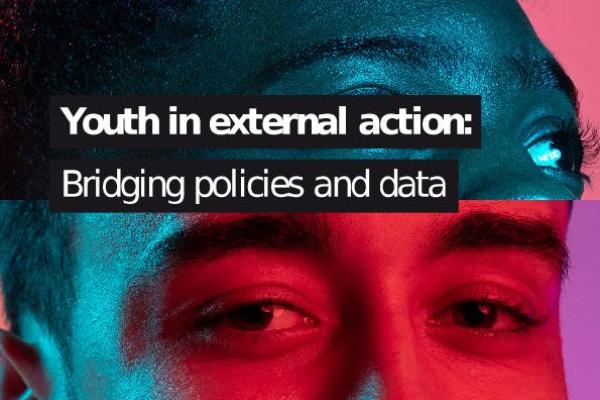
A JRC report shows that the need for specific youth policies is globally recognised, but more efforts are needed to bridge the gap between youth and their participation in policymaking. For example, in relation to climate policies, it is important to improve data on youth exposure to climate change at global level.
Today’s global youth population is key to the planet’s economic, social, political and environmental future.
The EU recognises the importance of providing a positive future for young people in Europe and around the world.
This is reflected in the Youth Action Plan for EU’s external action, which seeks to ensure a coherent and comprehensive approach to youth in external action and that youth is meaningfully involved in shaping these policies.
The JRC report on youth in external action published today along with its accompanying dataset, contributes to an evidence-based approach to the Youth Action Plan, and support a move towards greater coherence and coordination of policies and programmes on youth in the EU’s external action.
It analyses the evolution of youth policies in 55 countries and maps international data on youth across thematic areas assessing over 250 official and non-official indicators.
The report shows that the need for specific policies addressing youth is globally recognised, and that the theme of youth is present in employment, education and health policies across the world, but a link is missing between the youth and climate change policies of non-EU countries.
The report also highlights gaps in international youth data. In particular, data is lacking on youth exposure to climate change and youth participation, i.e. on how young people participate in and influence decisions and engage in actions and activities so as to contribute to building a better society.
Data is also very limited in the areas of peace and security, humanitarian action and fighting discrimination.
Youth and climate change
Climate change has severe implications for our societies and the environment. These changes are particularly significant for today’s young people, as they will affect how they live in the future.
Despite the unprecedented efforts made by young people to voice their concerns on climate change all over the world, the youth laws and policies of non-EU countries make very little reference to climate change. Moreover, the existing set of indicators on youth exposure to climate change, or possible action to fight climate change, is still very limited.
Youth participation
The other significant gap concerns youth participation.
Participation has been underlined as a key dimension in all international youth policy frameworks as well as in many national approaches.
It is a central concept in many EU external action policies, from the establishment of a Youth Sounding Board to programmes promoting youth participation in partner countries.
And yet, there is a limited range of international indicators which measure youth participation in its various forms and the data which is available is limited.
The report recommends investing in evidence-based youth policies and improving international data on youth through multilateral cooperation involving the EU, its Member States and international partners.
Details
- Publication date
- 4 October 2022
- Author
- Joint Research Centre





